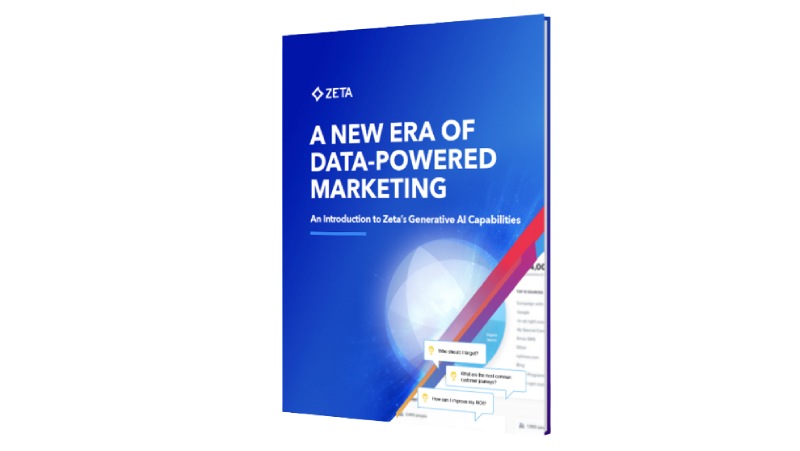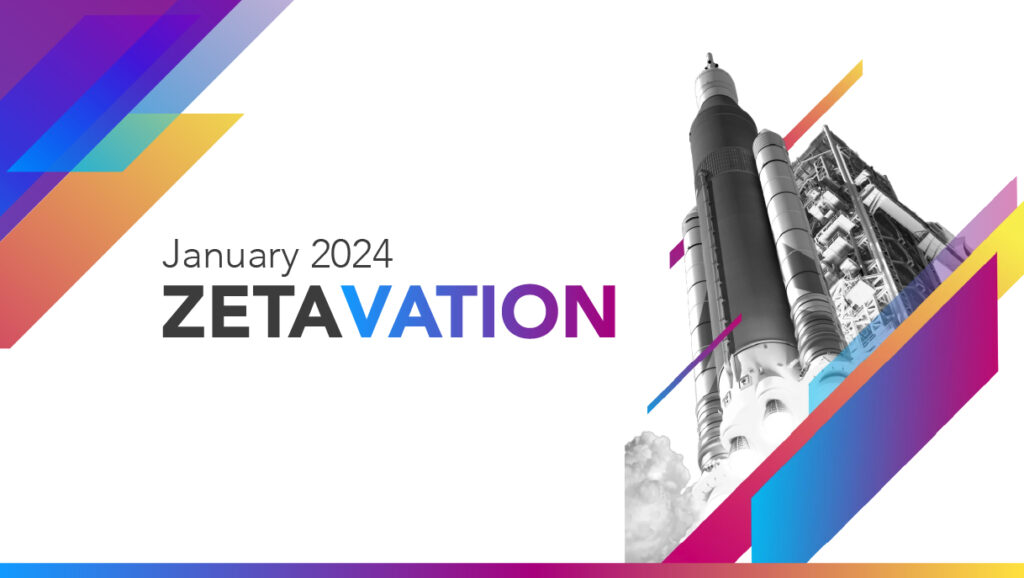
How Generative AI Impacts your Digital Transformation Strategy
Even though artificial intelligence (AI) has been around for a long time, the rise of large language models (LLMs) like ChatGPT has taken it to center stage.
While AI has the potential to disrupt all facets of business (and life), its impact on digital transformation strategy, or the ability to organize and deploy technology at scale with efficiency, speed, and customer satisfaction top of mind, will be the most critical to brands.
The main obstacle that enterprises face is finding a practical application for intelligence in order to deepen engagement with consumers and improve business outcomes.
To date, there are many micro use cases of using AI for operational efficiency. “Today it’s around optimization within a function,” says Janet Balis, Marketing Practice Leader at EY. “Over time we’ll create business and value growth by looking at how those decisions interact with each other to create more value together. We’ll see a shift to macro use cases, connecting silos and helping drive more business intelligence on how we connect decision making, sales to marketing to pricing to supply chain.”
In this article, we’ll explore how generative AI is a significant transformation driver to your digital strategy.
Generative AI Democratizes Access for Marketers
Companies like Yahoo and Discover Financial Services have been using machine learning (ML) and AI for a very long time: “We’ve been using AI/ML forever to personalize news, curate content, and organize the inbox. What’s changing is the expectation on the customer experience—that bar is only rising. A year ago, people expected personalization—a year from now, it’ll be expecting content to be generated specifically for me,” says Lara Davis, Chief Strategy Officer at Yahoo.
What was once exclusively available to data scientists and engineers is now accessible to everyone. Marketers have been some of the first to experiment and adopt AI, leveraging tools to do everything from write copy, design images, or edit video.
This interest and adoption has been a catalyst for a paradigm shift. Call it a revolution, an evolution, everything is now AI-powered—and any tools straggling behind will soon catch up.
AI is digital transformation. It’s fundamentally changing the way businesses operate, and its core value proposition is efficiency, speed of delivery, and simplification of processes. At scale, this could be the single most impactful advancement that actually brings digital transformation to the forefront, and not just for enterprise-level brands.
Brands now not only have access to data, but also the tools that can make sense of it, quickly. But that’s not all. We can now use those analytics to take action. For marketers, AI has the power to coalesce the disparate data, insights, and campaigns into the powerful data-driven omnichannel strategies that we’ve been pining after.
Balis explains that we “can’t underemphasize the data transformation required to power a digital transformation required to power AI.”
Ipso facto, data transformation is digital transformation. And AI has the potential to supercharge both.
So, how has AI impacted digital transformation strategies? According to Davis “AI hasn’t changed our strategy for digital transformation, it’s expedited and expanded how we’re thinking about digital transformation. AI has to be at the heart of all of our digital transformation initiatives.”
But it requires leadership, and an evolution of the role of CMO.
The Role of the Modern CMO
As AI becomes a boardroom topic, we see the modern CMO with not just a seat at the table, but leading the charge. They are co-piloting—if not fully piloting—what have historically been IT-helmed projects.
Why? Because modern marketing, and much of consumers’ experiences, are driven by technology. And that brings the rise of the technology-minded “modern CMO.”
Balis goes on to say that CMOs are leading the AI conversation because they’re leading digital transformation. They can’t drive business outcomes without foundational data quality, which they can’t achieve without data and digital transformation.
“CMOs have superpowers that go far beyond marketing transformation. They appreciate the human emotion required to transform organizations at the enterprise level. So if AI will disrupt not just each function, but how those functions connect, we need CMOs to drive the AI transformation,” Balis explains. “They also sit in two of the commercial functions most disrupted by generative AI: sales and marketing. So it’s natural that they are feeling both the opportunity and disruption.”
Ramon Jones, EVP and Chief Marketing Officer at Nationwide, sees it as the balance between art and science. “The evolution of technology allows us to be more effective. Everyone has an opinion on the art of marketing, but AI is allowing us to be more effective in customer segmentation, more efficient in acquiring new consumers and building brands, and just getting better and smarter about the work. The tools available are phenomenal: how we use them going forward will dictate who’s going to win and lose in this space.”
AI: Leveling the Playing Field or Competitive Advantage?
We’ve already established that AI helps with operational efficiency, but what about business growth? Does AI help level the playing field, or is it a competitive advantage?
Turns out, it’s probably both.
AI will transform how we all work—it already is. And it’s widely held that since most technology-forward companies are rapidly innovating using AI, it’s a competitive disadvantage to ignore it.
The challenge for most brands is inventing new features and offers that satisfy not just customer demand, but also refining their current strategy.
“AI isn’t the solution, it’s an assistive tool to deliver for customers,” says Davis. “We have data, scale, brand recognition; this puts us ahead of the race, but it’s not the only thing. Everyone is moving fast right now. This puts pressure on us all to invent and innovate—even outside the core business—to stay competitive.”
Matt Lattman, SVP of Card Services at Discover Financial Services, has a similar sentiment: “We’ll see two areas of growth in the next year. One, filling gaps; things like documentation as we’re building out products. These are tasks that people historically haven’t wanted to do, but need to. Generative AI can get you part of the way. And two, search. We have customers who use ChatGPT to search for information around credit cards. So what do I need to do differently in how I think about content marketing and SEO strategy, and teaching myself and the team how algorithms work, so that we can win. How do we get there first?”
Whether it’s copy, the creative process, or data-fueled segmentation and targeting, AI is already an instrumental part of how some marketing teams function.
Want to hear more from Balis, Jones, Davis, and Lattman? Watch them on this short panel, AI: An Equalizer or Competitive Advantage.
Zeta’s AI-powered Marketing Cloud
Zeta’s marketing platform helps marketers make AI-powered decisions, designed to reconcile data from across your tech stack, expedite speed to intelligence, provide deeper analytics, and deliver greater return on investment.
Learn how generative AI factors into the future of the Zeta Marketing Platform and how it will help marketers create more human experiences for consumers.
Related Blogs & Resources
Want to see Zeta in action?






